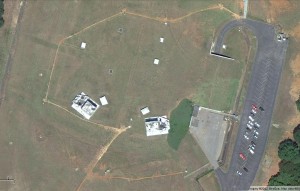One couple in Oakwood awoke this morning to find their 2012 Toyota Highlander had been stolen. The owners had both sets of keys so they were mystified as to how this happened. Fortunately for them, their vehicle was recovered this morning, a few miles away. The police said the engine was still hot so they might have just missed the thief.
It seems Toyota Highlanders are popular targets for car thieves. A half-dozen disappeared from one Montreal neighborhood one night in 2009, prompting authorities to wonder if Toyota’s keyless security system had been compromised:
Authorities say they are still trying to determine if an organized crime ring is behind the thefts. They are also trying to determine if the thieves used “proximity keys” to steal electric codes from lock systems — a new technology available on the Toyota Highlander.
The key can capture lock, entry and start codes by monitoring the radio waves given off when the owner approaches the vehicle to leave home.
“They didn’t get the keys,” said Michael Dougherty, a Leaside resident who had his car stolen Wednesday. “Police said apparently thieves can use a laptop computer to disable the chip in the key and the entrance (lock) somehow.”
Another possibility is that the cars are being stolen through social engineering, Thieves could be taking the target vehicle’s VIN to a Toyota dealer and convincing them to make a duplicate key. If so, that should leave a paper trail and possibly a shot of the thief on the dealer’s surveillance cameras:
One explanation for the rash of thefts is that criminals have been able to get their hands on duplicate keys, said Dubin.
In the past, crooks have been able to convince dealerships they are owners who have lost theirs. Another explanation, he said, is that the Highlanders were simply towed away, which has also been a problem.
Having six Highlanders in one neighborhood stolen in one night seems to point to a vulnerability in the keyless system, rather than stealing them with duplicate keys. It’s unlikely a thief would reappear six times at a dealer to get duplicate keys made.
At any rate, if I had a Toyota Highlander I would be sleeping with one eye open!

